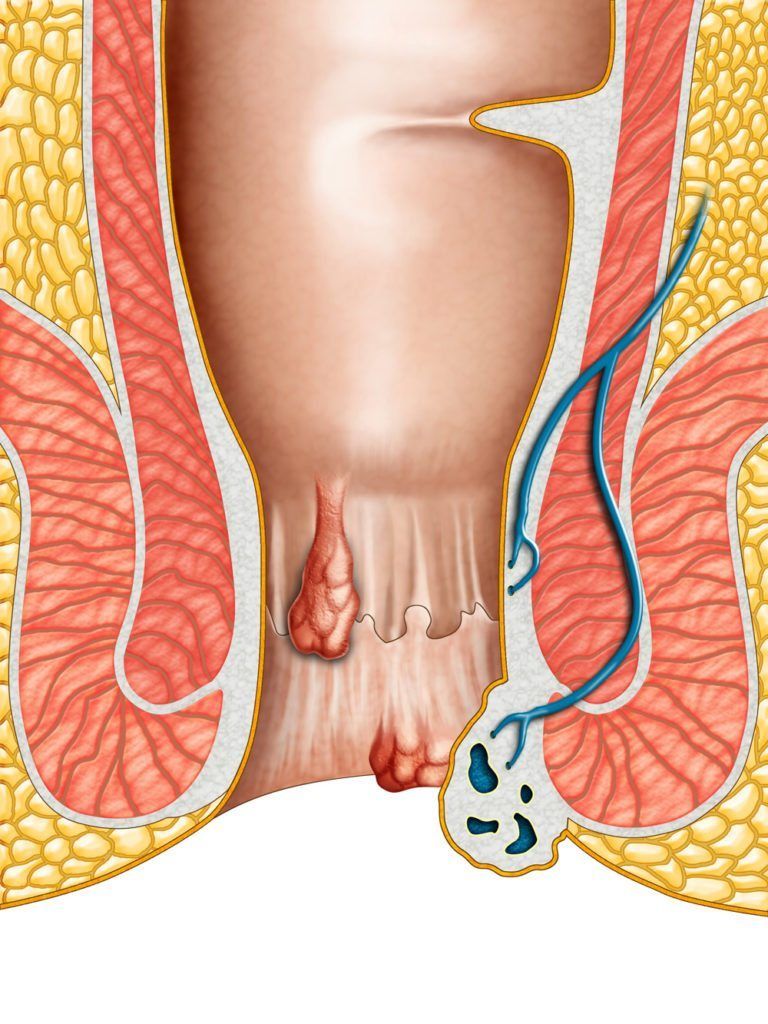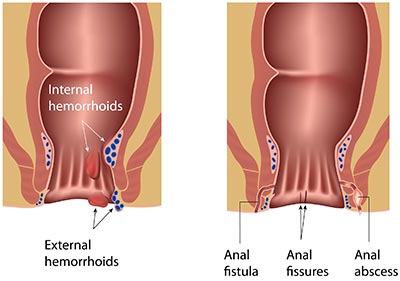Rectal Bleeding

Rectal bleeding can refer to any blood that passes from your anus, although rectal bleeding is usually assumed to refer to bleeding from your colon or your rectum. Rectal bleeding may show up as blood in your stool, on the toilet paper or in the toilet bowl. Blood that results from rectal bleeding can range in color from bright red to dark maroon to a dark, tarry color. There are many possible causes for rectal bleeding and a complete evaluation and early diagnosis by your doctor is very important.

Rectal bleeding should always be evaluated with a thorough consultation and examination by a physician for an accurate diagnosis and treatment plan as it may be a symptom or sign of a serious illness or condition.
Rectal bleeding can be a symptom of colorectal or anal cancer, a type of cancer that can be cured if detected early. Rectal bleeding can also be caused by hemorrhoids, anal fissures, colitis or many other causes. Disorder higher up in the digestive tract including can also lead to rectal bleeding. For these reasons, an examination with an experienced general surgeon is the first step to identifying the underlying cause of your rectal bleeding and determining the best treatment options. The cause needs to be properly diagnosed in order to have the correct treatment.
Symptoms associated with rectal bleeding
- straining and constipation
- abdominal pain
- itching
- swelling around the anus
- skin problems
- diarrhea
Causes of Rectal Bleeding
Causes of of rectal bleeding include:
- Hemorrhoids
- Anal Fissures
- Anal Cancer
- Colon Cancer
- Colon Polyps
- Ulcerative Colitis/Crohn’s Disease
- Solitary Rectal Ulcer (ulcer in the rectum)
- Diverticulosis (bulging pouch that forms on wall of large intestine)
- Proctitis (inflammation of the rectum)
- Ischemic colitis (colon inflammation caused by reduced blood flow)
- Infectious Colitis (inflammation of the colon caused by infection)
Diagnosing Rectal Bleeding
During your examination, Our surgeons have several options to find the source of your rectal bleeding. They may:
- Examine your anus visually
- Feel for abnormalities within your rectum with a gloved, lubricated finger
- Perform an anoscopy using an anoscope which is a 3-4 inch short tube
- Perform a colonoscopy
Treating Rectal Bleeding
Treating rectal bleeding depends on first findings its cause. It is crucial that rectal bleeding should always be evaluated with a thorough consultation and examination by an experienced general surgeon for an accurate diagnosis and treatment plan.
It may be a symptom or sign of a serious illness or condition including colorectal or anal cancer, types of cancer that can be cured if detected early.


